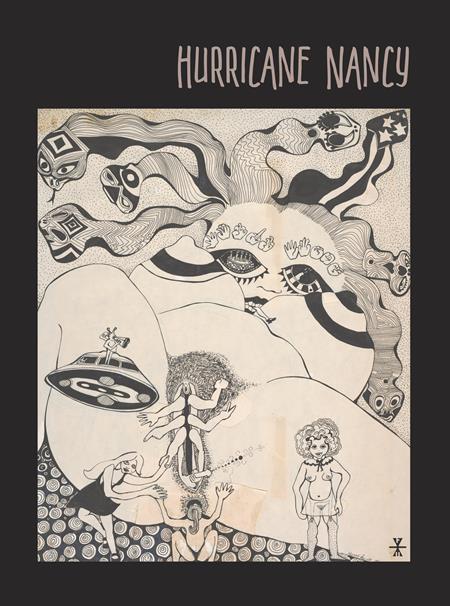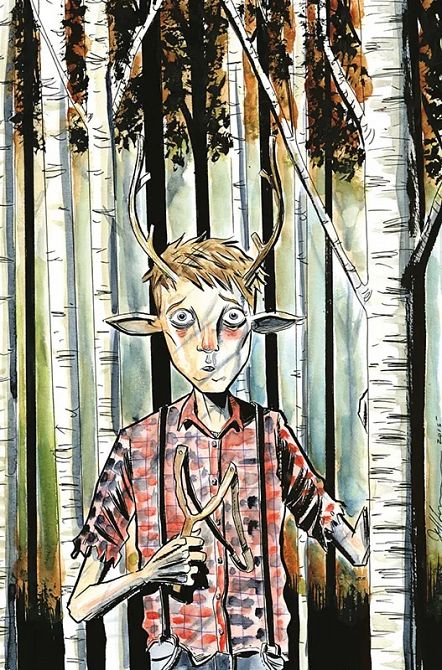COMIC ROOM HAMBURG
Güntherstr. 94
22087 Hamburg
Öffnungszeiten im Laden:
- Mo.-Di.:
- 11.30 - 19.00
- Mi.:
- Geschlossen
- Do.-Fr.:
- 11.30 - 19.00
- Sa.:
- 11.30 - 16.00
Tel.: (040) 25496088
Unsere Emails:
HURRICANE NANCY TP

HURRICANE NANCY TP

28,50€
Artikel noch nicht erschienen. Vorbestellung über 'Kaufen'!
Verlag:
FANTAGRAPHICS UNDERGROUND
Künstler:
ncy Burton / ncy Burton / ncy Burton
Zeichner:
ncy Burton
Coverzeichner:
ncy Burton
Erscheinungsdatum:
07.06.2024
Beschreibung:
Nancy Burton was among the earliest underground cartoonists, creating comic strips that appeared in The East Village Other (“Gentle’s Tripout”) and Gothic Blimp Works ('Busy Boxes”) in 1966. Under the pen names “Panzika” and “Nancy Kalish” and most importantly, “Hurricane Nancy,” she contributed to many notable underground comix including It Ain’t Me, Babe. Drawing on abstract expressionism, art nouveau and formline art, working in parallel to the psychedelic art movement and outsider artists like Consuelo “Chelo” Amezcua, Burton’s comics feature birds and people, dreamlike landscapes, and psychedelic imagery that grows darker as the 1960s come to a close, reflecting the darkening mood of the era and her uniquely personal vision of the world. Burton stopped making art in the early 1970s and seemed to disappear, having met few cartoonists during her short tenure but making an impression on many with her unique psychedelic approach. In 2009 she began drawing again, posting artwork online without explanation and though many aspects of her work had changed, it remained indelibly her own. Hurricane Nancy is the first collection of Burton’s work ever published and reprints many of her comics and drawings from that politically tumultuous and creatively fecund period of American culture in addition to her more recent work. In an exclusive interview, Burton talks about her travels and influences, the origins of her pen names, close encounters with Timothy Leary and the Grateful Dead, the Monterey Pop Festival and the Summer of Love, and explains for the first time why she not just abandoned comics in the early ‘70s, but stopped making art entirely.
Nancy Burton was among the earliest underground cartoonists, creating comic strips that appeared in The East Village Other (“Gentle’s Tripout”) and Gothic Blimp Works ('Busy Boxes”) in 1966. Under the pen names “Panzika” and “Nancy Kalish” and most importantly, “Hurricane Nancy,” she contributed to many notable underground comix including It Ain’t Me, Babe. Drawing on abstract expressionism, art nouveau and formline art, working in parallel to the psychedelic art movement and outsider artists like Consuelo “Chelo” Amezcua, Burton’s comics feature birds and people, dreamlike landscapes, and psychedelic imagery that grows darker as the 1960s come to a close, reflecting the darkening mood of the era and her uniquely personal vision of the world. Burton stopped making art in the early 1970s and seemed to disappear, having met few cartoonists during her short tenure but making an impression on many with her unique psychedelic approach. In 2009 she began drawing again, posting artwork online without explanation and though many aspects of her work had changed, it remained indelibly her own. Hurricane Nancy is the first collection of Burton’s work ever published and reprints many of her comics and drawings from that politically tumultuous and creatively fecund period of American culture in addition to her more recent work. In an exclusive interview, Burton talks about her travels and influences, the origins of her pen names, close encounters with Timothy Leary and the Grateful Dead, the Monterey Pop Festival and the Summer of Love, and explains for the first time why she not just abandoned comics in the early ‘70s, but stopped making art entirely.
X

X






 Über den Comic Room
Über den Comic Room


